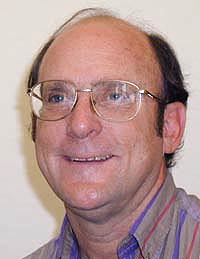No job, no home, no limit: Re-entry grad's persistence achieves his dream
BERKELEY – When Duane De Witt delivers the student address at his University of California, Berkeley, graduation ceremony on May 22, he may lose his composure.
"I came here homeless, and now I'm speaking to my graduating class," De Witt admitted, with more than a hint of disbelief in his voice.
 Duane De Witt |
But this 48-year-old re-entry student can thank his persistence and determination for graduating Phi Beta Kappa in Interdisciplinary Studies and gaining admission into UC Berkeley's graduate program in city and regional planning next fall.
Several years ago the Santa Rose native was laid off as a respiratory therapist at about the same time his mother had a stroke. He took care of her while going to Santa Rosa Junior College, where he was gaining skills for a new career.
After he finished at the college, he applied to UC Berkeley as a transfer student, but was not accepted. He applied several times, in fact, but was turned down. Finally, after the fourth turndown, he appealed and was accepted.
When he arrived at UC Berkeley in fall 2000, De Witt had no place to live. Housing was tight then, and he didn't have enough money to put down a deposit on a rental apartment. But being homeless was not going to keep De Witt from getting his education; he lived in People's Park, and when the weather got cold, he slept in his car.
In October, the only home he had - his car - was broken into, and everything he owned was stolen, including class notes and all of his belongings. He was referred by the Re-entry Center to the UC Berkeley Financial Aid Office to get an emergency loan, and then Michelle Kniffin at Housing Services took an interest in him and helped him find a place to live and navigate the system.
"If it weren't for people spread all through this wonderful campus, I never would be where I am today," De Witt said. He credits everyone from the dedicated staff at the Re-entry Program, which works with students who are transfers or are older than typical students, to clerks at financial aid, to his academic advisors and classmates who helped him reconstruct his stolen class notes.
"Duane is an example of Berkeley's work to reach out to older and low income students," said Helen Johnson, director of the Re-entry Program. "It is students like Duane, whose different perspectives enrich classroom discussion, that have helped to create a more inclusive environment on campus."
Ron Williams, the Re-entry Program's academic advisor, agreed. "Duane's influence on other students has been invaluable," Williams said. "By example, he showed other students to never give up their dreams."
Through his Interdisciplinary Studies major at UC Berkeley - he combined city and regional planning, Scandinavian studies and journalism - De Witt has pursued his goal to help poor people get adequate, affordable housing. During his three years at UC Berkeley, he spent one semester and a summer at the University of Copenhagen studying Denmark's housing issues.
With his graduate work, De Witt said he plans to continue his studies to be a "houser."
De Witt hopes eventually to get his PhD. He feels that, at his age, he will not be able to compete in the job market without it.
"I'm going to make sure I do so well that I'm credible," he said. "It's not a glory field, but we really need ways to house people."
When he addresses his fellow graduates next week at UC Berkeley's Greek Theatre, De Witt plans to combine an old Ukrainian saying, "You can't teach an old bear to dance," with the similar American expression, "You can't teach an old dog new tricks."
But he will tell students that he is living proof that isn't true.
"This old golden bear has learned a lot of new tricks," he said with a smile. "And I'm planning on learning a whole lot more."

